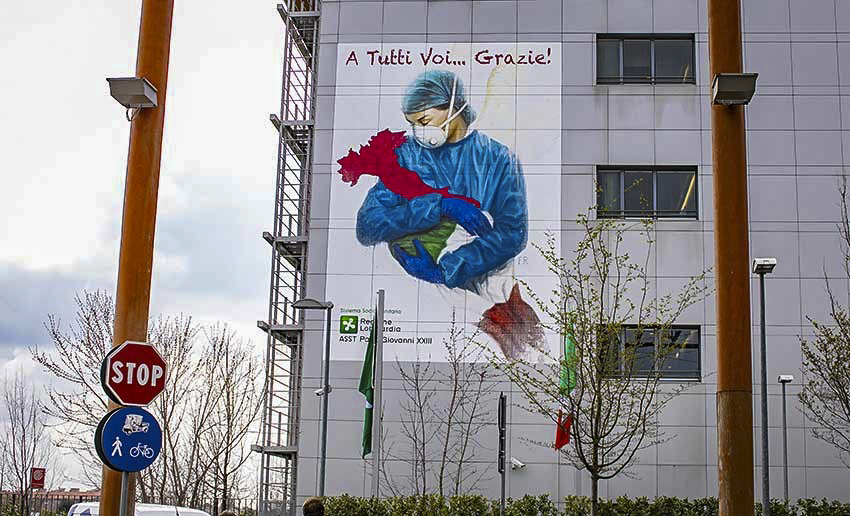
By Theresia Titus
Scalabrinian priest Father Anthony Paganoni, who currently resides in the epicentre of the coronavirus pandemic in Bergamo, Italy, has shared his brief observation and thoughts on the COVID-19 situation in Italy with The Record.
Since his initial reflections, which were published in The Catholic Weekly, Fr Paganoni informed The Record that the city he resides in had endured a worsening situation.
“I regret being able to make two rather discomforting statements: First, the increase in the numbers of those affected by Coronavirus leaves little doubt as to its energy in spreading its lethal wings In Italy we now have 11,000 (and growing daily) infections, with some scientists saying that the potential number of contagiati (the contagious) are severely underestimated,” Fr Paganoni said.
“Secondly, even more underestimated is the social factor: fear, which is a lot more widespread and pervasive than the number of infections.This particularly affects the elderly and the lonely.”
Fr Paganoni, who was formerly based in Perth, explained that being generously kind and charitable to those in need are the best response Catholics are encouraged to do.
“More than 50 Italian doctors and nurses have already lost their lives serving patients in the epicentre of the epidemic, near Milan. As a Scalabrinian priest, I recall the example of Saint Charles Borromeo, our protector,” he said.
“He belonged to one of the most affluent families in Milan. Yet instead of running away, he freely mixed, day after day, among those affected by the plague.
“As St Charles did, we also should begin to think about how we can utilise savings and other resources to provide financial aid and support to families and those hardest hit by the virus,” he continued.
Fr Paganoni said Italian media professionals “have publicly decried, even accused” their “civil authorities of both central and local governments of being too slow in responding” to the pandemic, which he believed still remains a mystery for both the scientists and governments.
“I only hope that in the future science may be able to improve both the timeliness and the efficacy of the public and private sector’s response,” he added.
Fr Paganoni dedicated six years of his life from 2002 to 2008 for the migrants in Perth, which he said “ably and intelligently supported by Archbishop Emeritus Barry Hickey and a very good number of friends in the wider community”.
Fr Paganoni also believed that “cultivating a sense of renewed and rediscovered togetherness, even at a distance” is the best action to take during this difficult period.
“The enforced physical distance between human beings, wherever they are, should not in any way bite into and weaken our sense of mutual responsibility – ‘all for one and one for all’ should be our motto even more,” he continued.
“We can learn from other things too. Astronomers are telling us that the earth’s upper atmosphere is much cleaner that it usually is, due to greatly-reduced industrial production and, therefore, a decline in pollution of the upper stratosphere!”
Courtesy The Catholic Weekly